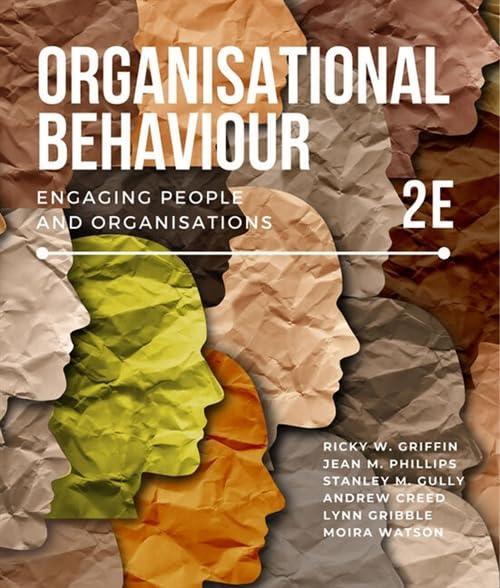Dr Suni Wansal, Executive Director of the Alliance for Ethical Leadership, reviewed what she would say tomorrow
Question:
Dr Suni Wansal, Executive Director of the Alliance for Ethical Leadership, reviewed what she would say tomorrow at a national media function where she would be speaking on the conflict for public servants making public social media comments about what they viewed as morally objectionable government policy.26 She was going to use the case of Michaela Banerji, a public servant who had tweeted criticism of the government’s policies on asylum seekers.27 Suni reviewed the unfolding of the case. Michaela Banerji, who worked in the public affairs division of the then Federal Department of Immigration and Border Protection, was a keen tweeter who, in early 2012, used the handle of @LaLegale to voice her opinion on Australia’s deployment of guards at immigration detention centres, and about the prime minister and the minister for immigration, among others, through more than 9000 tweets.
Posted outside of work on her personal phone, the tweets were anonymous and did not disclose confidential information. Ms Banerji admitted that the policy contravened her value set and she had a conscientious objection to what was happening to asylum seekers, commenting, ‘This is about being able to be free as a private citizen to make political comment in my own time’. In late 2012 her identity was unmasked and her department started a disciplinary process to prevent her tweeting. Ms Banerji went to the Federal Circuit Court to halt the department’s action, arguing that her tweeting was protected by the implied constitutional right of political communication, a view that was not upheld, with the court finding that her tweeting had contravened her contract of employment. She was dismissed in 2013 for breaching the Australian Public Service (APS) Code of Conduct requiring public servants to be professional, impartial and apolitical.
Upon receiving the notice of termination, Ms Banerji lodged a claim for workers’ compensation for post-traumatic stress disorder, which in 2014 was refused by the government’s workplace insurer, Comcare. After an appeal and two hearings before the Administrative Appeals Tribunal (AAT), it was decided in 2018 that Ms Banerji had suffered an adjustment disorder that was contributed to by the government’s decision to terminate her employment and she was thus eligible for compensation. The AAT determined her sacking was unlawful because it ‘unacceptably trespassed on the implied freedom of political communication’29 of the Australian Constitution. Comcare then appealed to the Federal Court of Australia and subsequently to have the case removed to the High Court of Australia.
In 2019 the High Court ruled unanimously that the APS Code of Conduct applied, that Ms Banerji’s dismissal was lawful and the head of an agency had the right to impose sanctions including dismissal for breaches of the APS Code of Conduct. The judgment found that the ‘maintenance of an apolitical public service’ should be upheld and any limitations that imposed on the freedom of political communication was justified.30 Suni understood that under Australian law there is no formal legal right to freedom of speech. Though the High Court had previously acknowledged an implied right to freedom of political communication as part of the democratic system, it is not deemed a personal right for citizens but instead is a constraint on the operations of Parliament. Suni finalised her thinking about the ethics of allowing employment contracts to repudiate people’s freedom of speech and the role public servants can play in a democracy31 and made the finishing touches to her address.
Question
How would you respond to the dilemma in the case of Michaela Banerji of abiding by the ethics, values and standards of your employer when you considered the employer was wrong, or contravening your employment contract and speaking out on social media?
Step by Step Answer:

Organisational Behaviour Engaging People And Organisations
ISBN: 272389
2nd Edition
Authors: Ricky W. Griffin, Jean M. Phillips, Stanley M. Gully, Andrew Creed, Lynn Gribble, Moira Watson





